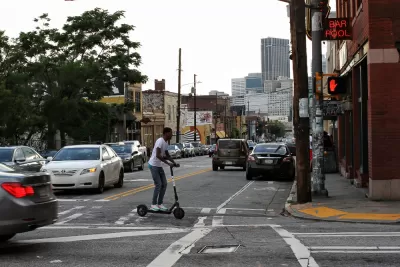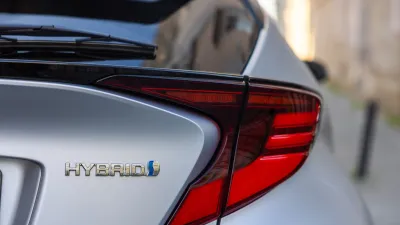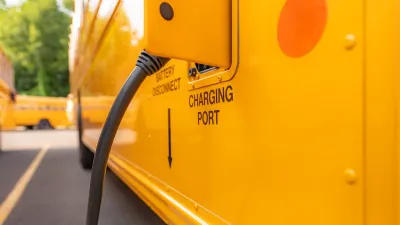The Electric Black Future initiative seeks to address historic disparities in transportation, energy, and technology workforce by helping Black communities in three Georgia cities shape their e-mobility futures.

According to Atlanta media outlet WABE, a partnership of multiple Georgia groups, local governments, and the state department of transportation are working together to bring cleaner transportation to Black communities over the next three years. “The Electric Black Futures project will work with Black communities in Atlanta, Albany and Savannah to develop plans for electrifying transportation,” writes reporter Emily Jones. “The initiative aims to correct past injustices while shifting away from fossil fuel-powered transportation that worsens climate change.”
With $1.4 million in funding from the Department of Energy, the Electric Black Future project will work directly with Black communities to develop e-mobility plans to enhance public transit, electric shuttle, e-bike and e-scooter, and walkability in communities that have historically been left without transit access and exposed to more pollution from gas-powered vehicles. It will also work to address occupational segregation in the clean energy sector, where only 8 percent of workers are Black or African American.
“As we build a future powered by clean transportation, it is imperative that those facing the greatest challenges are prioritized in the planning process. Through deep listening sessions and documentation of community stories and thorough assessment of community needs and dreams, we will harness community input to develop actionable strategies aligned with local, state, and federal e-mobility initiatives, workforce training programs, industry investments, and job opportunities to demand that Black Georgians should be at the heart of their own communities’ innovations,” the Electric Black Future’s website reads.
FULL STORY: New project aims for cleaner, more equitable transportation for Black communities in Georgia

Alabama: Trump Terminates Settlements for Black Communities Harmed By Raw Sewage
Trump deemed the landmark civil rights agreement “illegal DEI and environmental justice policy.”

Study: Maui’s Plan to Convert Vacation Rentals to Long-Term Housing Could Cause Nearly $1 Billion Economic Loss
The plan would reduce visitor accommodation by 25% resulting in 1,900 jobs lost.

Why Should We Subsidize Public Transportation?
Many public transit agencies face financial stress due to rising costs, declining fare revenue, and declining subsidies. Transit advocates must provide a strong business case for increasing public transit funding.

Paris Bike Boom Leads to Steep Drop in Air Pollution
The French city’s air quality has improved dramatically in the past 20 years, coinciding with a growth in cycling.

Why Housing Costs More to Build in California Than in Texas
Hard costs like labor and materials combined with ‘soft’ costs such as permitting make building in the San Francisco Bay Area almost three times as costly as in Texas cities.

San Diego County Sees a Rise in Urban Coyotes
San Diego County experiences a rise in urban coyotes, as sightings become prevalent throughout its urban neighbourhoods and surrounding areas.
Urban Design for Planners 1: Software Tools
This six-course series explores essential urban design concepts using open source software and equips planners with the tools they need to participate fully in the urban design process.
Planning for Universal Design
Learn the tools for implementing Universal Design in planning regulations.
Smith Gee Studio
Alamo Area Metropolitan Planning Organization
City of Santa Clarita
Institute for Housing and Urban Development Studies (IHS)
City of Grandview
Harvard GSD Executive Education
Toledo-Lucas County Plan Commissions
Salt Lake City
NYU Wagner Graduate School of Public Service





























